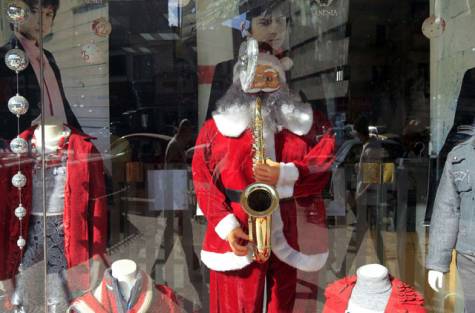In a society where more than a quarter of the population lives below the poverty line, and more than 16m residents are illiterate, drama plays a crucial role in shaping society’s customs, traditions, lifestyle, and in introducing new trends.
This raises two important questions: is TV drama responsible for improving the quality of people’s lives and teaching them how to behave, dress, and respond to certain situations? Or is it just another mirror that reflects the ugliness of the society with its contradictions, bad manners, and low ethical standards?
Looking at the diversity of Ramadan drama series this year, ranging from action, drama, fantasy, to comedy and suspense, one may wonder why people were more attracted to watching only a certain TV series over others, despite the huge number of alternatives.
In some of the recent surveys carried out by newspapers and TV channels, Al-Ostora (The Legend) series, starring Mohammed Ramadan, Fardous Abdel Hameed, Rogina, and Mai Omar, proved to be the most popular TV drama by recording the highest viewership rates.
The success of this series was not the regular sensation of a drama that tackles the reality of life with its ugliness, injustice, inequality, and violence—this show, for a large number of audiences, meant much more than that.
The protagonist, Nasser, is a hardworking student at the faculty of law and had dreams of becoming a prosecutor. Despite being qualified, he was rejected. Then, another misfortune hit: after the death of his older brother, Nasser was sent to jail even though he was innocent. In order to protect his rights, he resorted to becoming a thug.
For certain social classes and segments of society, Nasser is not just a fictional character in a popular TV series. For many, he is the lost opportunity and the missing dream they were unable to achieve due to the hardships and difficulties society has thrown at them. Instead of simply being a tool for entertainment, this series turned into a phenomenon that represented the sufferings of young Egyptians who do not have the means to pursue their dreams.
Egyptians often gather in public cafés and squares to watch local and international football matches, but to gather publicly for a TV series was unprecedented. Nasser’s face was printed on T-shirts, mugs, and key chains. His haircut and remarkable beard turned into a trendy style that a large number of young people started to adopt.
Although many critics and sociologists have argued that such a character is a negative influence on the minds of children and teenagers and could tarnish the public’s taste, others have defended the series and the realistic messages it conveys. They argued that they see their own lives reflected in the main characters the series presented. Aside from whether someone is a fan of Ramadan series or not, Al-Ostora has proved that getting closer to people’s pain and presenting the ugly reality of our society nowadays is apparently what people want to see on cinema and TV screens.
This is not the first time Mohammed Ramadan has achieved unprecedented success in a role. However, he has been accused many times of promoting bullying, crime, and forbidden relationships due to his previous roles in films such as Abdo Mouta, Al-Almany, and Qalb El Asad.
Despite his critics, it seems that he is still capable of success, owing it to the people’s wish to see this kind of realistic drama that conveys reality without beautifying it.



